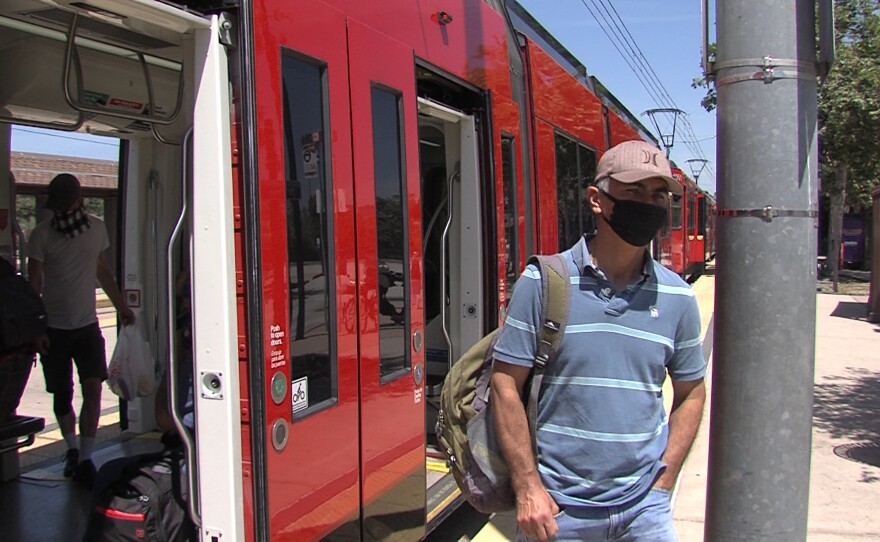Metropolitan Transit System (MTS) board members on Thursday reviewed a report on the agency's security policies prompted by years of complaints of overzealous fare enforcement policies.
The report from the American Public Transit Association includes dozens of recommendations ranging from more de-escalation and implicit bias training for security officers to the creation of a "rider advisory committee" made up of everyday transit passengers.
One recommendation that generated interest among board members was quite simple: Give new uniforms to the inspectors who patrol the trolley platforms and check that passengers have paid their fares. MTS CEO Sharon Cooney said the agency is exploring bright yellow shirts rather than the "paramilitary" appearance they currently have.
"It's one way to make them feel more approachable for passengers who might not feel as comfortable approaching somebody that's wearing more of a police look," Cooney said. "But it's also a way for them to be more easily identified from a distance."
San Diego City Councilmember Sean Elo-Rivera, who serves on the MTS board, praised that idea, saying the more police-like uniforms could be off putting to some passengers.
"The word safety is thrown around a lot, and I think it's important for us to keep in mind the subjectivity of that feeling," Elo-Rivera said. "What may make one person or family feel safe riding on transit could be triggering and even repellant to others."
In the meantime, MTS will continue a program instituted last summer aimed at keeping fare violators out of the court system. Currently if a passenger is caught without a valid ticket, they are allowed to get off the vehicle and purchase one.
Cooney said the results of the program have been skewed by the massive disruption to typical ridership trends caused by the COVID-19 pandemic. But early results, she said, show a number of people simply exit the trolley and leave without buying a ticket.
RELATED: Transit Agencies Considering Fare Hikes To Pay For System Upgrade
Coronado City Councilmember Bill Sandke said he applauded the "kinder and gentler" direction of fare enforcement policies, but also worries that they will lead to more fare evasion.
"If people are ignoring the tickets, ignoring the diversion policies and ignoring the gifts that we're providing them so far ... it leads me to believe that if it's a civil citation or whatever it is, it's going to receive the same lack of respect," Sandke said.
But San Diego City Councilmember Monica Montgomery Steppe, who chairs the board's public security committee, said the point of the program is to avoid conflict and prevent fare violators from being trapped in a cycle of increasing fines and court fees.
"I remember why we did this in the first place," Montgomery Steppe said. "Is it more beneficial for us to have someone walk away rather than get into scuffles and have to use force? We have to evaluate all of these things."








